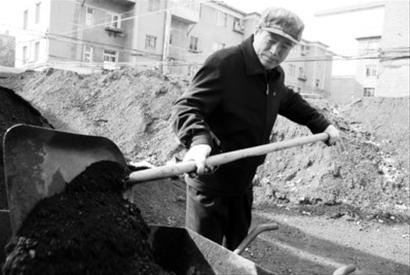Coal burning in N China shortens lifespan
 0 Comment(s)
0 Comment(s) Print
Print E-mail China.org.cn, July 9, 2013
E-mail China.org.cn, July 9, 2013
A study says that China's long-term policy of burning coal to provide heating for residents in the north has cut people's life expectancy by 5.5 years there, according to Monday's report on the BBC website.
 |
|
A study says that China's long-term policy of burning coal to provide heating for residents in the north has cut people's life expectancy by 5.5 years there. [File photo] |
The study, which was conducted by researchers from China, Israel and the United States, was published on June 8 on the Proceedings of the National Academy of Sciences website (PNAS.org). It reads the air pollution in northern China, caused by coal burning, is 55 percent higher than that found in the south, consequently shortening the life expectancy of the northerners by 5.5 years.
From 1950 to 1980, China maintained a policy of handing out free coal for fuel boilers to provide indoor heating to cities located north of the Huai River, which divides China into north and south. Although the policy was no longer implemented after 1980, it left behind a legacy of coal burning across northern China.
The researchers collected data on the annual daily average concentration of total suspended particulates (TSPs) from 90 Chinese cities over a time period of two decades (1981 to 2000). After that, they analyzed the mortality statistics from 1991 to 2000, and subsequently found evidence of shorter life expectancy in the previously "free coal" areas.
Previous studies showed air pollution has a negative impact on human health, yet this new research answers a more important question -- life expectancy is affected by air pollution, according to Michael Greenstone, a professor of environmental economics at the Massachusetts Institute of Technology and one of the study's authors.






Go to Forum >>0 Comment(s)